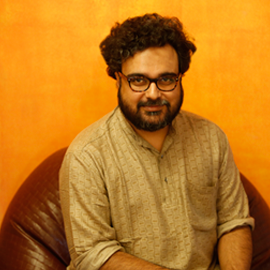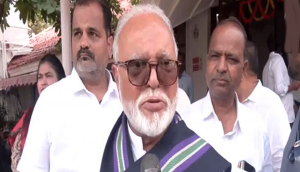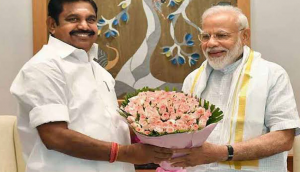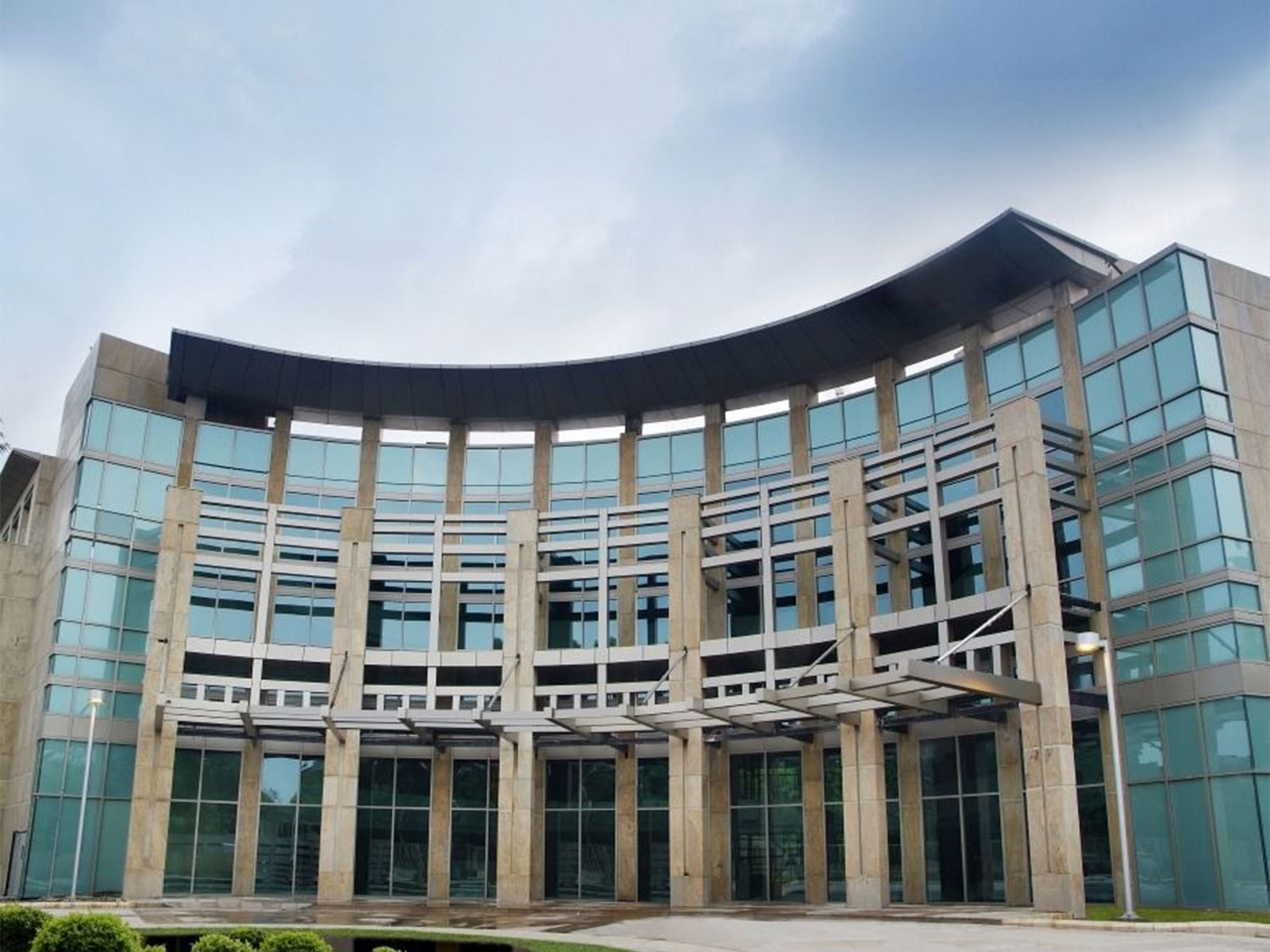Modi@2: why he has failed to deliver Achhe Din for the BJP

Clearly, Narendra Modi is in his heyday. He's the country's prime minister and the unchallenged leader of the BJP. Yet, his party is still waiting for its Achhe Din.
The party's grassroots workers are disgruntled, its second and third rungs of leadership are weakening, the majority of MPs are dejected. In sum, the BJP has not followed a trajectory of healthy growth in the past two years. More worryingly, perhaps, it has been wavering from its core principles.
The BJP owes its genesis to two factors - the RSS' desire to gain power in order to implement its "cultural nationalism", and availability of a political space for an alternative to the Congress to emerge.
True to this "mission", the BJP has concentrated all its energies on achieving the twin objectives. It has successfully raised the flag of Hindutva-oriented "cultural nationalism" to compete against the secular nationalism espoused by the Congress. It has portrayed itself as a "party with the difference", claiming to be a principle-driven party that's free from such malaise as nepotism.
Its triumph in the 2014 general election was an unprecedented achievement for the BJP. It was, however, more Modi's victory than the party's; the party was only a stakeholder. Consequently, the power won also belongs to Modi. The BJP is a mere stakeholder in this as well.
The much-touted Gujarat "model of development" that catapulted Modi to power wasn't borne out of BJP's ideology. It was all Modi's. The campaign machinery that delivered the 2014 election, too, was Modi's brainchild. The campaign, in fact, was Modi marching alone, not so much as pretending to take everybody along. It worked too. He was victorious.
Two years on, and despite some achievements on the part of the government, a sense of despondency is replacing the euphoria of victory within the BJP.
To count some of the achievements, BJP has won elections in states where it barely had a presence before - J&K and Assam. The party assumed power in Haryana as well, and gained an unprecedented majority in Maharashtra. Now, the BJP has also made inroads into Kerala and West Bengal.
Although the BJP, in power, has pursued the RSS' agenda with zeal, there's a feeling that the party has deviated from many of its core principles. The party has always positioned itself as opposed to the "tyrannical" policies of the Congress vis-a-vis states. It often cornered the Congress by espousing the cause of "co-operative federalism". But the fiascos in Arunachal Pradesh and Uttarakhand exposed it as being essentially a hypocrite and knocked it off the self-claimed moral high ground. The fresh allegations of trying to topple the governments in Karnataka, Himachal Pradesh and Delhi has only further discredited the BJP, inside and outside the parliament.
The Bihar election campaign was marked by several "stings" against BJP's rival parties. The same tactic was recently repeated in Uttarakhand. This has caused the party more harm than good. The BJP stands accused of "framing" opposition leaders through these "sting operations". This "shortcut politics" is likely to cost the BJP dear, politically and electorally.
One man's party
The centralisation of power within the party structure hasn't helped either. A few favourites of Modi and Amit Shah are ruling the roost at both the central and state levels. Allegiance to the party and its principles is secondary to loyalty to Modi and Shah. There is little scope for a healthy competition among leaders in the party. Only those in the good books of the "king" are relevant. This is Modi's BJP.
Several senior leaders of the party have been pushed into near-oblivion. The wings of leaders seen as unfavourable to Modi and Shah have been clipped. Sycophancy and self-centred politics are the order of the day in the second and third rungs of the leadership.
As a senior BJP leader put it, "The euphoria of victory might prevent the party from noticing these ailments. But the party is bound to stray from its path in the coming years. A whole generation of leaders has been infected by such unhealthy attributes."
The centralisation of power is evident in the parliament as well. Most BJP MPs have become inconsequential and marginalised. The signal to them is clear: Modi is here not because of you, rather you are here because of him. The voice of the party's own representatives holds no significance in the ministries. Some whispers of dissent notwithstanding, nobody has dared sound the bugle of revolt against the current state of affairs. This is because the strings of the party and the government are pulled by the same hands. Leaders like Shatrughan Sinha, RK Singh and Kirti Azad have been silenced.
The MPs, however, realise they will have to go back to the electorate in 2019. Their helplessness in the corridors of power and among the masses could cost the BJP their loyalty. This is only going to fuel factionalism and mistrust within the party, something the top leadership must start worrying about.
The BJP cannot count solely on the "Modi factor" to win elections. He is by no means a guarantee of victory as the humiliating defeats in Delhi and Bihar made clear. The party still has a lot of distance to cover in southern states. It faces a stiff challenge in Punjab, Uttarakhand and Uttar Pradesh. Ironically, the leadership is still not ready to give a free hand to state leaders, and may repeat the mistakes of Delhi and Bihar in other states, especially UP - likely to detrimental effect.
Core problems
Modi seems to trust the RSS more than even his party, and this is a major impediment in the path of BJP's progress. Also, as a senior leader explained, "The BJP is currently led by people who are more managers than leaders. The problem with managers is that they are more concerned about the interests of the leadership. They are least bothered about the future of the party. This is why many of the recent decisions have harmed the party's image."
It's a no-brainer that the government's performance affects the party's popularity. But the Modi government's performance has been marred by over-centralisation of power. This is the reason why it has had to reverse some of its own policies like rules governing the withdrawal of provident fund. Decision-making has largely been left to bureaucrats. BJP leaders and workers have little say in policy-making. As a result, dissatisfaction is simmering. .
The BJP is facing a two-fold challenge. It needs to deliver on some of its core issues such as Ram Temple, Article 370, Uniform Civil Code and Swadeshi development. The hardcore Modi supporters expect the government to fulfil its promise of acting tough on corruption and sending the guilty to jail. The core vote bank wants Modi to look after the interests of upper castes and work for the establishment of a Hindu Rashtra. The government, however, has shown little inclination to act on these issues so far.
The party also has to answer about the dreams it sold the people before the 2014 election. The government has failed to keep most of its major promises - bringing back black money; sending corrupt Congress leaders to prison; talking tough with Pakistan; generating jobs; safeguarding the interests of farmers, landless labourers and women.
It's not without reason that Modi's supporters are now on the backfoot, the same lot that once aggressively campaigned for him on every street corner. The sagging morale of these supporters is a big challenge for the party to tackle. The grassroots worker is faced with the dilemma of defending the decisions of the government he or she was not a part of.
The BJP owes its recent electoral successes to Modi. At the same time, his leadership and "politics of profit" has destabilised the party. If this continues, Modi could well become a liability.
"We would have been better off as MPs of any other party," said a party MP from Uttar Pradesh. This sense of pessimism is becoming more widespread by the day. Clearly, these are not Achhe Din for the BJP.
First published: 26 May 2016, 9:28 IST






![BJP's Kapil Mishra recreates Shankar Mahadevan’s ‘Breathless’ song to highlight Delhi pollution [WATCH] BJP's Kapil Mishra recreates Shankar Mahadevan’s ‘Breathless’ song to highlight Delhi pollution [WATCH]](https://images.catchnews.com/upload/2022/11/03/kapil-mishra_240884_300x172.png)

![Anupam Kher shares pictures of his toned body on 67th birthday [MUST SEE] Anupam Kher shares pictures of his toned body on 67th birthday [MUST SEE]](https://images.catchnews.com/upload/2022/03/07/Anupam_kher_231145_300x172.jpg)






